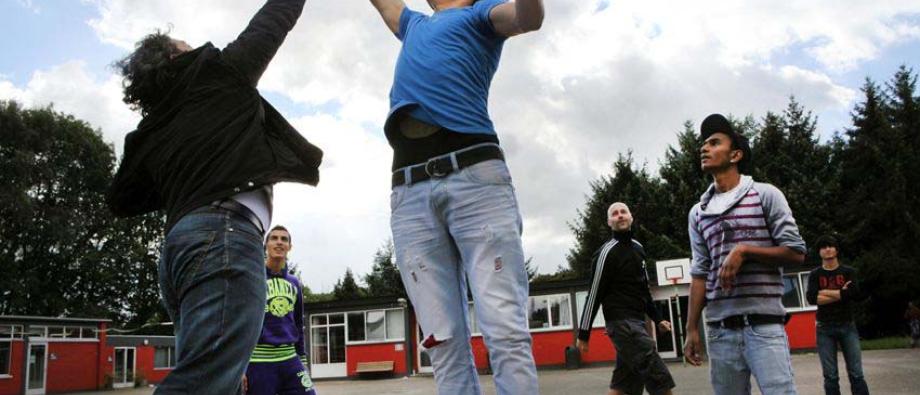
On Monday the 27th of July, UNHCR and Fedasil launched a report entitled “All Born on 01/01” which examines the situation of Afghan asylum seekers residing in collective reception centres in Belgium.
The report is based on participatory assessments carried out in 2013 and 2014 and identifies a number of underlying stresses and frustrations linked to the asylum seekers’ experiences, which contributed to tensions in the centres.Sources of stressTo understand the feelings and experiences of the Afghans, UNHCR, in collaboration with Fedasil, listened to their voices through both group discussions and individual interviews. The outcome of this exercise was revealing. It showed not only the trauma due to their experiences in Afghanistan but highlighted a number of sources of anxiety, such as their perilous journey to Europe and their difficulties linked to life in the centres.Many asylum seekers saw their arrival in Belgium as the end of a process and had difficulties to understand the purpose of the asylum procedure. They also wished to continued their education but then encountered difficulties adapting and concentrating in the classrooms. As one unaccompanied Afghan boy put it: “How can someone who has grown up for 17 years in one culture adapt to a new one and integrate into the new society in one year? How can I understand everything at once?”The report also looks into the particular situation of unaccompanied children as well as of women and girls in the centres who had been at risk of sexual and gender-based violence. The asylum-seekers perception of the work of social workers, interpreters and lawyers is also examined.Opportunities for the futureThis snapshot assessment, which reflects the views of asylum seekers and benefited of the collaboration of staff working in the centres, came up with a number of recommendations for action. UNHCR and Fedasil underlined, amongst others, the need for high quality legal aid, continued psychosocial support and consistent information, to be provided in a manner which is adapted to the asylum seeker’s age, gender and language. The possible employment of cultural mediators to diffuse tensions and the possibility of joint training were also discussed. During the launch Ms Fanny François, Director Policy Support of Fedasil, explained the work already done by Fedasil in the different areas highlighted by the report. Paolo Artini, Deputy Regional Representative for Western Europe, underlined the relevance of the report for other population groups in the current context of increasing arrivals and expressed appreciation for the work done by Fedasil in collaboration with Belgian NGOs.You can read the full report in attachment.
